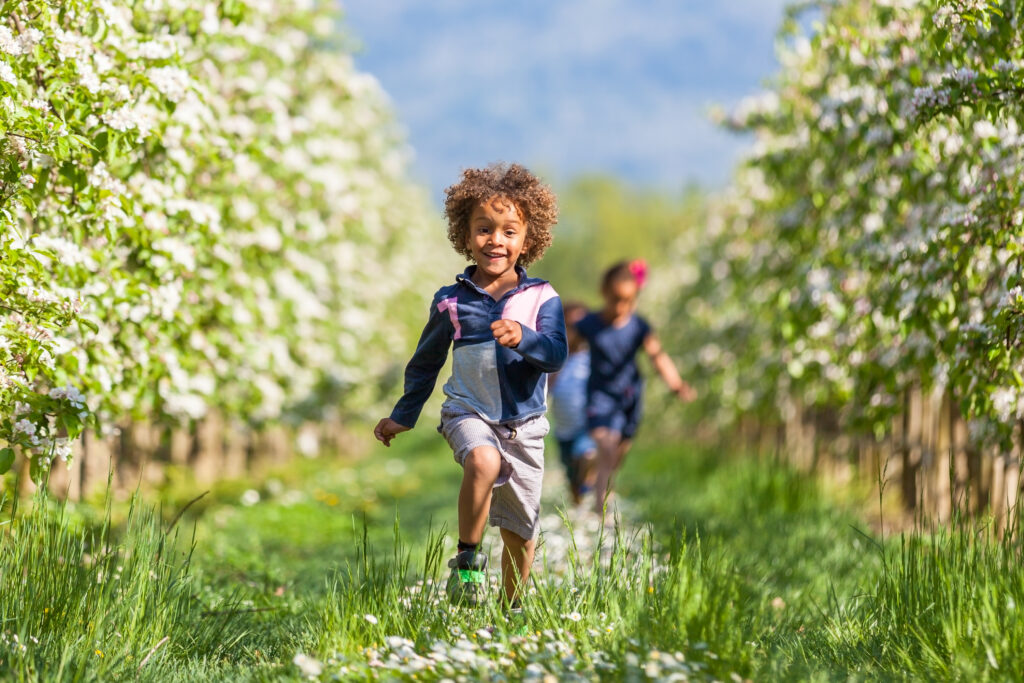 When I was growing up, difficult things didn’t scare me. Life was simple, and I was content with what we had. I felt loved and valued at home, which reflected positively in my relationships and academic efforts. Many colleagues of my generation had similar experiences in their youth.
When I was growing up, difficult things didn’t scare me. Life was simple, and I was content with what we had. I felt loved and valued at home, which reflected positively in my relationships and academic efforts. Many colleagues of my generation had similar experiences in their youth.
Fast forward several decades. Times have changed. New challenges abound. Uncertainty is a certainty. Anxiety is at an all-time high, with up to 60% of children and adolescents reporting symptoms of anxiety and depression.
Filled with frustration, many educators say, “Kids have changed.” But have they? Basic human needs, as outlined by Maslow back in 1942, have not changed. The challenges our youth face today have, however, changed. Many children lack a strong scaffolding of support and guidance from family. Often, working parents resort to screen time for their downtime. The lack of human connection is contributing to a relational skills crisis in our youth, and studies indicate that screen time is interfering with brain development.
This is where you come in. You can be instrumental in helping your students develop the skills they need to build the confidence needed to face challenges with a resilient spirit. Resilience is the capacity to recover from setbacks, changes, and disappointments. Adaptability and flexibility are highly sought-after soft skills. Non-academic, social, and emotional skills development hold the key.
Studies support that developing these non-cognitive skills has a higher correlation to future success, well-being, and healthy adult development than IQ. Additional research confirms that these abilities contribute to student academic success, an increase in overall well-being, and a sense of purposeful self-direction for individuals of all ages.
What are these skills?
Social and emotional skills include the capacity to understand and manage our emotions, cultivate positive relationships, and make responsible, productive decisions. This includes the ability to recognize, control, and express one’s emotions and to handle interpersonal relationships judiciously and empathetically. Healthy social and emotional skills are the building blocks of a well-grounded person. This is a person who is stable during unsettling times and adjusts well to challenges and change. Five competencies have been identified as key to social and emotional health.
- Self-awareness
- Self-management
- Social Awareness
- Relationship Skills
- Responsible Decision-making
The Connection to “Social Emotional Learning”
Social-emotional learning and development is the process of becoming aware of and applying positive social-emotional skills in everyday life. In some Christian circles, “social-emotional learning” is steeped in controversy, so let’s take a closer look.
The goals of social-emotional learning align intimately with the fruits of the Spirit as shared in Galatians 5:22–23; love, joy, peace, patience, kindness, goodness, faithfulness, gentleness, and self-control. A healthy and happy life is a product of all these qualities.
- To possess healthy self-awareness, we must see ourselves the way God sees us.
- To practice self-management, we must employ self-control.
- To exercise social awareness, gentleness is key.
- To enjoy healthy relationships, we must practice patience and kindness.
- If we seek goodness and wisdom, we will make more responsible decisions.
How are these skills developed?
As early as infancy, babies begin to develop the ability to understand their world and communicate their feelings. As children grow, they continue to seek connection and learn how to meet their needs appropriately with proper guidance.
These skills can be taught, but we must be intentional and relational. Confidence is not founded on gifts or looks. It is woven into a child’s spirit through relationships. It’s time to turn our frustrations into more fruitful emotions like empathy and turn our attention to playing an active role in understanding and developing these much-needed skills in our children.
Here are three things you can do:
- Develop Your Own Skills
God calls us to be good stewards of our minds, bodies, and souls (I Thessalonians 5:23). David sets the example in Psalm 139:23–24 when he asks the Lord to search his heart and thoughts.
As educators, we are called to teach and inspire the next generation to reach their full God-given potential. And yet, to do these things, we must first possess a clear understanding of our own hearts. By examining these areas of our lives, we can begin to exercise the skills needed to set the proper example and authentically lead children to do the same.
We cannot teach what we do not possess. How resilient are you? How do you respond to setbacks and change? Honest self-awareness is the foundation for managing our emotions, relationships, and decisions. If you are struggling or just need a tune-up, take my challenge, Social Emotional Health: 21-Day Challenge.
Stewardship of our emotions and minds gives life to the flesh (Proverbs 13:30).
- Develop Authentic Relationships
“Kids don’t care what you know until they know you care.” –Theodore Roosevelt
Our students increasingly come to school in fight-or-flight mode. Their world outside of school can be filled with conflict and uncertainty. The logical part of the brain cannot process academic content in this condition.
We MUST put the heart first and class content second. This happens by making personal and authentic connections with our students. Doing so can be simple, but must be intentional. Here are a few ideas:
-
-
- Compliment students on something every day.
- Check in before you dive in. Develop a morning activity to assess emotions and concerns before engaging in learning.
- End the day by sharing “takeaways,” such as lessons learned and blessings received.
-
Research shows that building these significant developmental relationships has a profound impact on students’ ability to grow in their social and emotional skills and is KEY to developing life-long resilience.
- Develop Your Classroom Culture
Integrating social and emotional activities into your classroom throughout the day is essential for students to practice and make meaningful connections to these skills.
Create opportunities for students to reflect on missteps and brainstorm solutions. This demonstrates that failures are not fatal but rather a chance to redirect. Doing so builds confidence and a sense of resilience as they face setbacks and daily challenges.
Help students understand and name their feelings without judgment by providing exercises that encourage self-reflection and personal expression. These can provide emotional clarity and reduce anger. Students then become open to learning how to appropriately express their emotions, thus improving their interactions, relationships, and self-esteem.
These skills build confidence and resilience, enhance children’s ability to bounce back from adversity, and help them value others and collaborate with them in the learning environment and beyond!
About the Author:
 Kathy Pierce Howard is a 20-year veteran Christian school counselor, guidance curriculum developer, adjunct professor, professional development provider, and published author, but her favorite roles are wife, mom, and grand-mom. Her biblically integrated curriculum, Prep4Success, addresses non-cognitive soft skills and early guidance activities that direct students to their divine design and connect their education with a greater purpose. These tools provide Christian educators with the materials they need to lead their students in making these connections and impart the skills and strategies that develop a lifelong love of learning.
Kathy Pierce Howard is a 20-year veteran Christian school counselor, guidance curriculum developer, adjunct professor, professional development provider, and published author, but her favorite roles are wife, mom, and grand-mom. Her biblically integrated curriculum, Prep4Success, addresses non-cognitive soft skills and early guidance activities that direct students to their divine design and connect their education with a greater purpose. These tools provide Christian educators with the materials they need to lead their students in making these connections and impart the skills and strategies that develop a lifelong love of learning.

